David Bowie Chant of the Ever Circling Skeletal Family
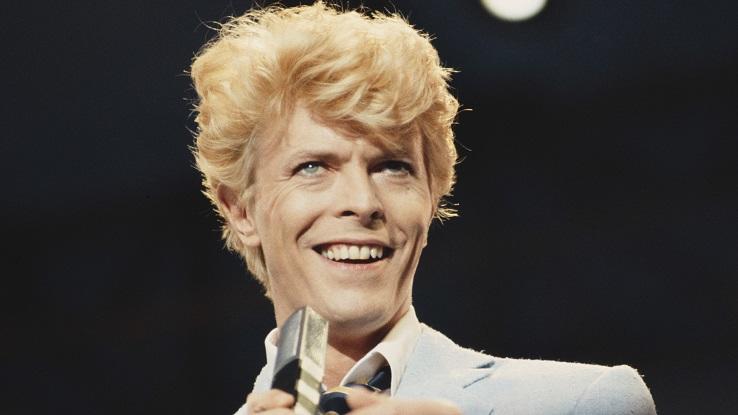
When David Bowie suddenly passed abroad in 2016, his departure sent the world into mourning. The glamorous, gender-angle, glam-rock icon was one of the well-nigh influential names in the history of music, evolving seamlessly through every era of changing sounds.
But he wasn't simply supremely talented. His whacky personas and baroque behaviors further cemented his place in rock star history — and forced him to grapple with the demons that often accompany fame. Here are 30 fascinating, piddling-known facts about David Bowie, everyone's favorite Starman.
His Existent Name Was David Jones
David Bowie has long been a household proper name, but he was originally called David Robert Jones. Somehow, information technology just doesn't have the same rock star glimmer to it, does it? However, Bowie didn't alter his name merely to suit his glamorous profile. He altered information technology to avoid getting dislocated with another major superstar: Davy Jones.
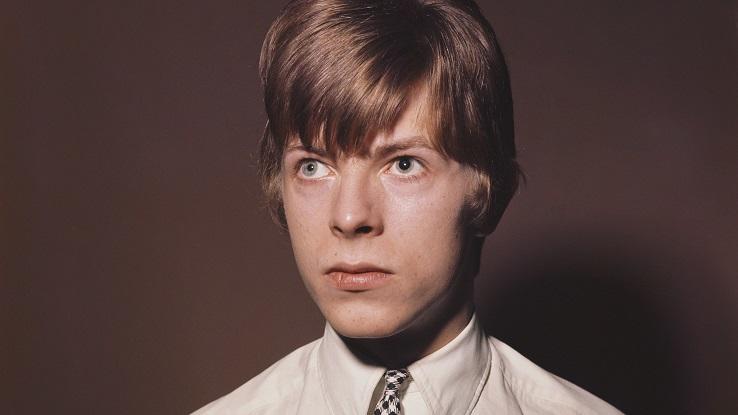
The atomic number 82 singer of the Monkees was already wildly popular during the time Bowie was launching his music career. In order to avoid whatever mistaken identity, young David Jones inverse his name to David Bowie — and the remainder is history.
The singer'south terminal name is quirky and iconic, simply he didn't pluck the unique moniker from thin air. Teenaged Bowie was drawn to the name for a variety of reasons, including that information technology was the trademark name of the all-American Bowie knife.
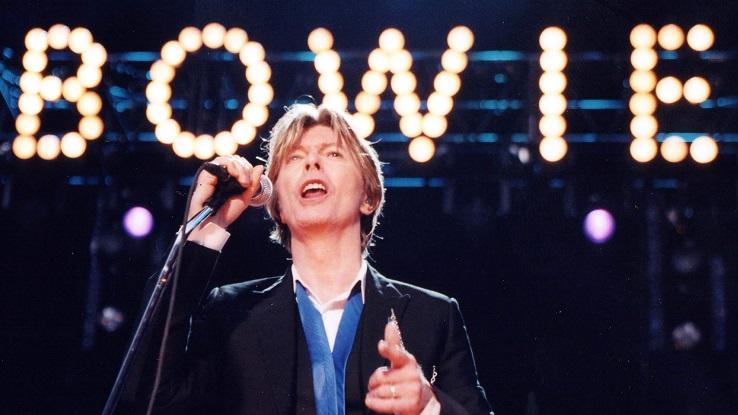
In a 1974 interview with writer William Southward. Burroughs, Bowie shared: "I was into a kind of heavy philosophy matter…and I wanted a truism almost cutting through the lies and all that." The aberrant name was also a way for him to split up himself from his pre-famous self. In a 1976 interview with People, he said, "I accept no confidence in David Jones as a public figure."
Ziggy Stardust Almost Made Him Insane
Of all Bowie's absurd and unique modify egos, Ziggy Stardust earned the most notoriety. The androgynous, glamorous, lightning-faced ethereal being existed at the forefront of his personality from 1972 to 1973. During this year-long menses, Bowie toured as Ziggy Stardust and the Spiders from Mars.
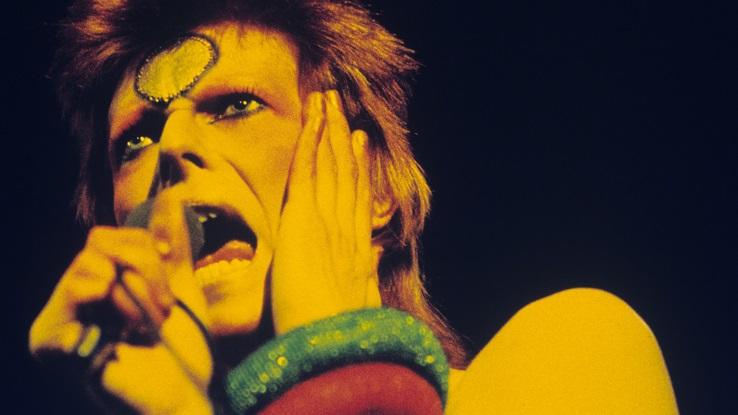
Unfortunately, every bit much as audiences loved Ziggy, Bowie began to experience overwhelmed by the persona. As their tour concluded, he told a live audience that he would not exist performing every bit Ziggy Stardust always again. He felt that Ziggy was an unhealthy presence in his life, sharing, "My whole personality was afflicted…I really did accept doubts about my sanity."
The Thin White Duke Was His Deadliest Persona
The next persona that Bowie adopted was the Sparse White Duke, which he presented from 1975 to 1976. The Sparse White Duke was possibly worse off than Ziggy Stardust, as he existed during a period when Bowie's mental sanity and physical health severely declined. Drugs, depression and paranoia became a role of his everyday life.
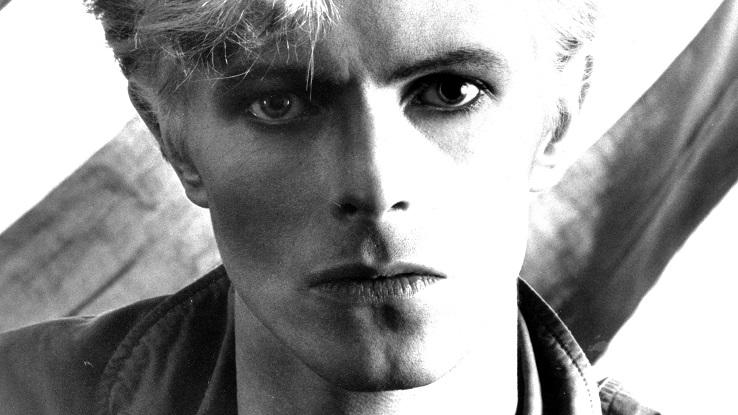
Equally Bowie became reclusive in Los Angeles, his sanity slipped away. The Thin White Knuckles was hollow, apathetic, emotionless and tormented. He was addicted to cocaine, decumbent to erratic behavior and fascinated with fascism. The persona earned him plenty of criticism, but he later explained his behavior, noting that the Thin White Duke existed during his darkest menses.
He Was Once Obsessed with the Occult and Wizards
During the tumultuous, cocaine-filled 1970s, Bowie began to experience astringent bouts of drug-induced psychosis. This wasn't helped past poor eating habits that led to rapid weight loss and eventually malnourishment. The Thin White Duke was born out of this psychosis, but more than came out of it than just the baroque new persona.
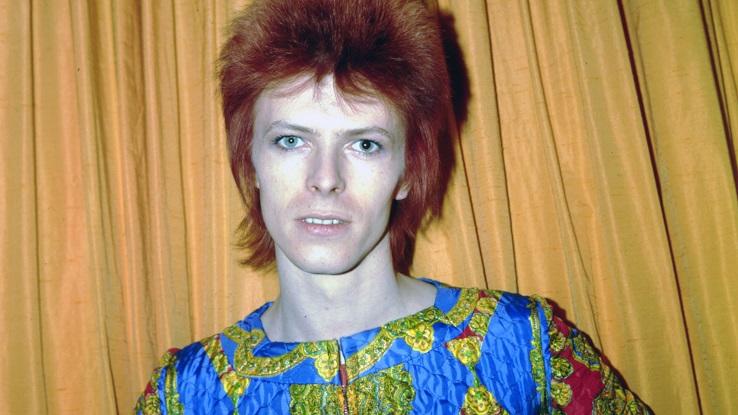
In a sleepless, starved, drugged-up haze most of the time, Bowie adult a troublesome relationship with the occult. He began to worry that wizards would steal his urine and use it to curse him. He started to jar his pee and place it in the fridge for safekeeping. (Super gross, right?) Fortunately, every bit his Duke years ended, these fears started to subside.
The Moon Landing Earned Him His Fame
To this twenty-four hours, David Bowie's nearly notorious melody is "Infinite Oddity." The haunting ballad isn't the type of vocal that would typically propel a singer like Bowie to fame. Nonetheless, thanks to the BBC's choice of music for their 1969 moon landing footage, he became an instant star.
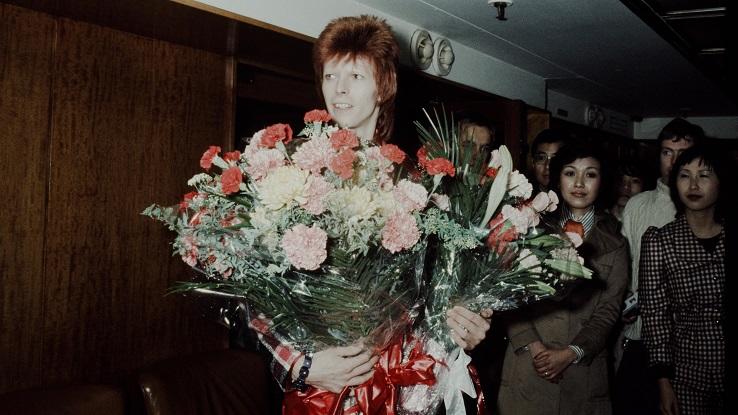
The landing of Apollo 11 was the event of a lifetime, and households across the world sabbatum glued to their televisions to lookout man the historic footage. Accompanying the remarkable footage of the landing, the BBC played Bowie's stellar rails. Inside hours, fame hit him like a brick wall.
He Was a Bisexual Icon
Like many corking rock stars — Prince, Freddie Mercury and Elton John, to name a few — Bowie was flamboyant, glamorous and gender-bending. With personas like Ziggy Stardust, he pushed the boundaries of gender and sexual expression. Queer fans in his audience were grateful for his tolerant cultural influence. Still, some struggled to distinguish his personhood from his persona.
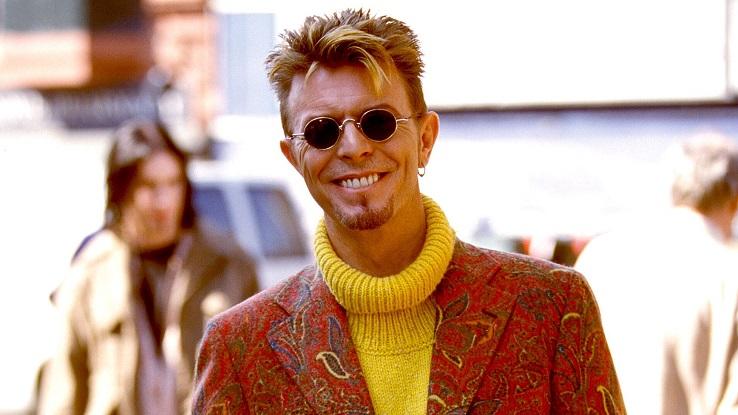
Many audiences grappled with their opinions about the sexuality and gender of the superstar. Bowie was aware of the discourse surrounding his identity and wished to quell any lingering rumors. In 1972, a mere five years later the British legalized homosexuality and at the start of the AIDS crisis, he bravely came out every bit gay and and so every bit bisexual.
Bowie Hated the Song Trivial Drummer Boy
In that location is no song that marks Christmas quite like the tricky rendition of "Peace on Earth/Lilliputian Drummer Boy" every bit performed past David Bowie and Bing Crosby. The iconic duet wasn't originally supposed to be a mash-up. Why was "Peace on Earth" added to the performance? Put but: Bowie hated the pa-rum pum pum pum.
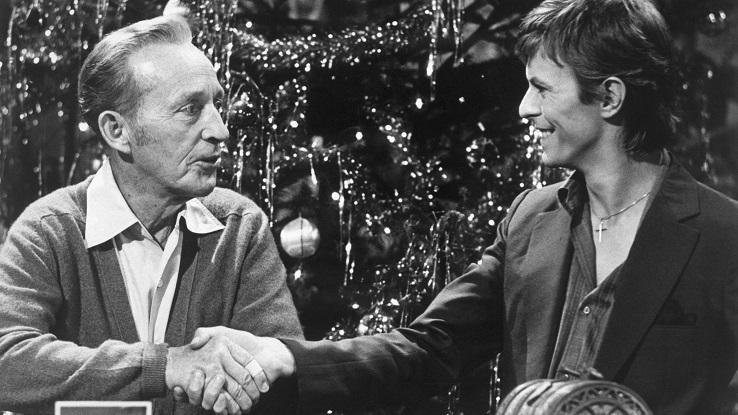
Bowie refused to perform the song and insisted they replace the tune with "Peace on Globe." To please the star, the show'south crew created a special rendition of the tune for Bowie to sing as a complementary harmony to Crosby's "Little Drummer Boy." After a mere half-hour of rehearsal, they performed the unique duet flawlessly.
Major Tom Wasn't a One-Time Character
"Footing command to Major Tom! Can you lot hear me, Major Tom?" Bowie's narrative of the lone astronaut literally launched his career into infinite, turning him into a superstar overnight. Even so, "Space Oddity" wasn't the only song that showcased Major Tom. Bowie seemed to understand the significance of the character and featured him in several other tunes.
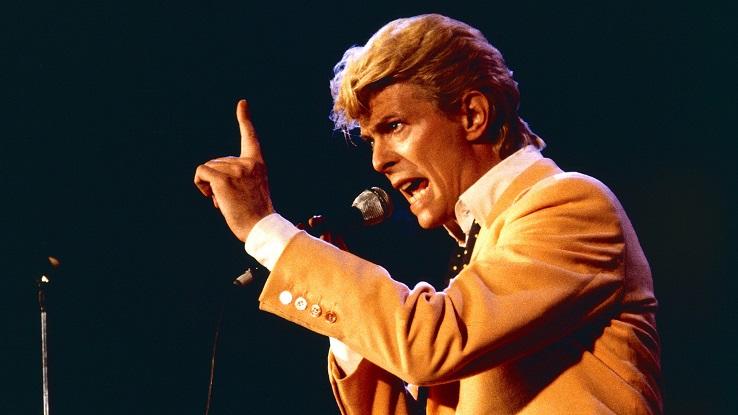
In "Ashes to Ashes," Major Tom is mentioned in the lines, "Ashes to ashes, funk to funky. Nosotros know Major Tom's a junkie." He'southward as well mentioned in the Pet Shop Boys' remix of "Hallo Spaceboy" in the lines, "Ground to Major, bye good day Tom. Dead the circuit, inaugural'southward incorrect." "New Killer Star" and "Blackstar" also reference the fictional astronaut.
He May Have Had an Eating Disorder
When the pressures of fame and identity caught upwards with Bowie, he turned to drugs, booze and other negative behaviors to cope. Many of his fans know about his chronic drug use, yet most don't know about his dangerous dietary habits. At one point in his life, he ate only peppers and milk, resulting in near-fatal malnourishment.
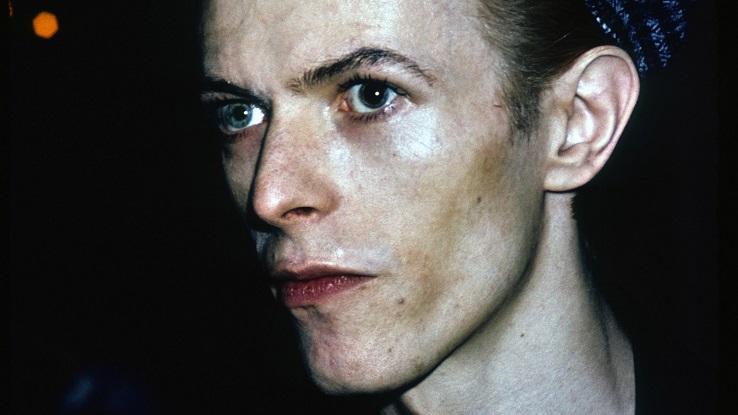
During this flow, Bowie dropped an astonishing amount of weight, becoming painfully thin and lethargic. Although this could be partially attributed to his drug utilize, psychologist Dr. Linda Papadopoulos noted that his diet was extremely disordered, sharing with REELZ, "It has all the hallmarks of an eating disorder, and at the base of most eating disorders, is this demand for control."
He Formed a Society to Protect Long-Haired Men
When David Bowie was a mere 17 years old, he made his first goggle box advent on the BBC's Tonight show. All the same, he wasn't brought on to perform for the oversupply. Instead, he was advertised as the spokesperson for a bizarre new grouping: the Society for the Prevention of Cruelty to Long-Haired Men.
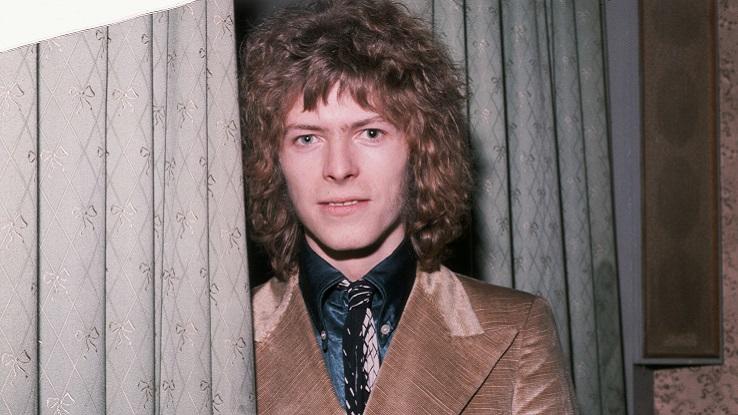
Bowie started the group to fight dorsum against maltreatment and bullying from strangers in passing who teased hippie-era, long-haired men. On This evening, Bowie said, "I call up we're all fairly tolerant…Merely for the terminal 2 years, we've had comments like 'Darling!' and 'Can I carry your pocketbook?' thrown at united states, and I think information technology just has to end now."
He Had Anisocoria, Not Heterochromia
Bowie'southward mystical eyes have e'er appeared unique — even from one some other. Many fans believe that he had a condition chosen heterochromia, where i eye is a different color than the other. Without the backstory, this explanation for Bowie'south eyes (i of which appears blueish, ane of which appears brown) makes perfect sense.
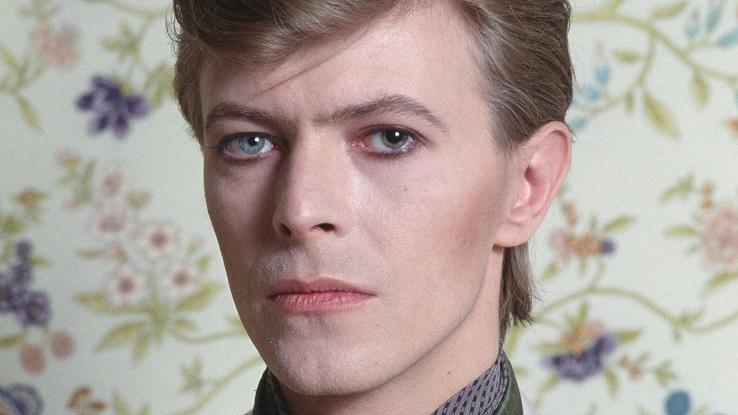
Even so, Bowie actually has an ocular status called anisocoria, which causes a permanently enlarged educatee. He developed the distinctive deformity during a schoolyard fight when he was 15 years erstwhile. His friend, George Underwood, slugged him in an argument virtually a girl, slicing his pupil with his fingernail. Fortunately, the duo fabricated upwardly and remained friends into adulthood — only the pupil damage remained.
He Sent a Pig Fetus to Rolling Rock
No matter what yous may call up, this wasn't a mean-spirited gift. In fact, it was quite the contrary! Bowie was frequently (happily) interviewed past Rolling Stone. During a 1990's interview with David Wild, he saw that another musician, Tom Petty, had given the journalist a dainty nowadays. Bowie felt pressure to send something the writer's way every bit well.
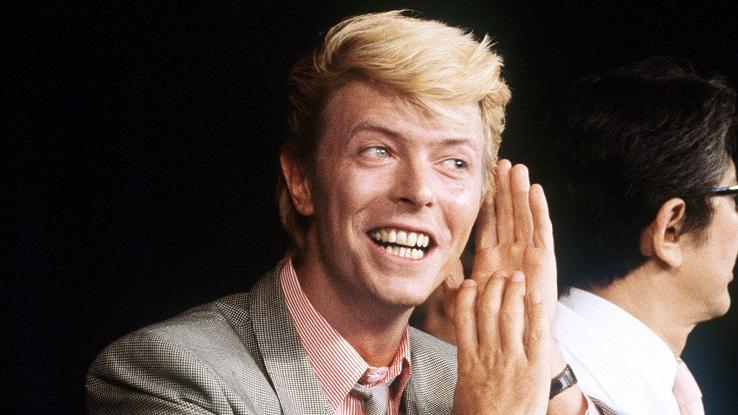
What could be amend than a squealer fetus, right? Yep, he decided to send a piglet in a jar to Wild — merely U.S. Customs confiscated the strange souvenir. What a surprise! Wild later admitted on the Adam Carolla Show that he was grateful the present was withheld, sharing, "There were weeks…of [Bowie] checking in to meet if a pig fetus had ever arrived."
A Lollipop Got Stuck to His Center
The trend of fans to throw objects at their favorite performing rock stars isn't reserved for Bowie. Everything from shoes to h2o bottles to mud — we're looking at you, Green Day — take been thrown at some of the biggest stars in every musical era. Unfortunately for Bowie, his feel with a candy-tossing fan had some pretty yucky consequences.
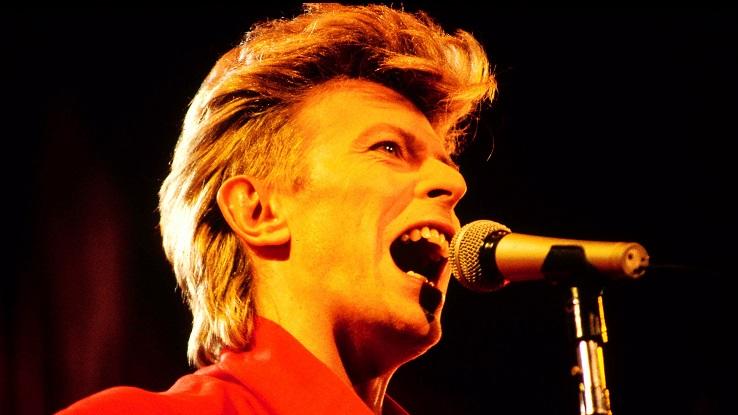
During a 2004 functioning in Norway, an audience member tossed a moisture lollipop at the performer. Unbelievably, the piece of processed stuck to his eyeball. A member of Bowie'due south crew quickly removed the protruding lollipop. Fortunately, he was a good sport about the ordeal and carried on with his performance. After all, the show must go on!
He Was a Talented Mime
Mastering consistent phase presence while singing can exist difficult for fifty-fifty the near seasoned singers, simply Bowie executed this necessary skill with ease. Believe it or non, he was as skilled at dominating the phase when he was completely silent. How is this possible? Well, in addition to being a talented musician, he was as well an incredible mime.
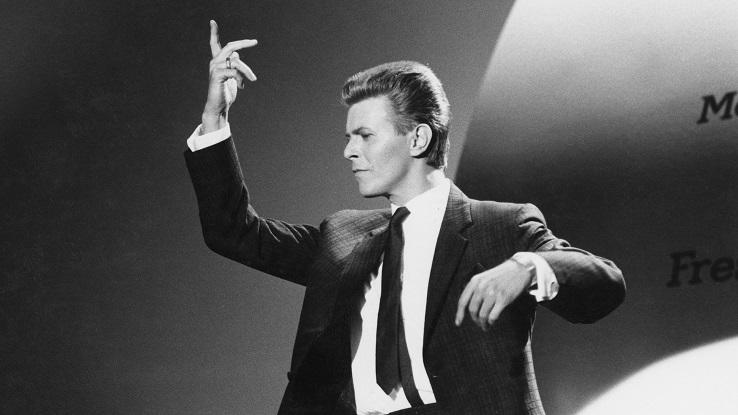
This might seem like a strange skill for a rock star, just Bowie loved to perform in different ways. He received his mime training from choreographer Lindsay Kemp, who also taught the uber-expressive Kate Bush. Miming was one of his earliest pursuits. In the early 60s, he toured every bit a mime with T. Rex and even started his own troupe.
He Was a Prolific Painter
Is there annihilation that David Bowie couldn't do? In add-on to his many other artistic skills, he was a prolific painter. His work was oft post-modern, resulting in haunting, trippy and surreal paintings. Many of his greatest pieces were his neo-expressionist self-portraits. Inspired by greats similar Picasso and Tintoretto, Bowie produced a plethora of meditative works.
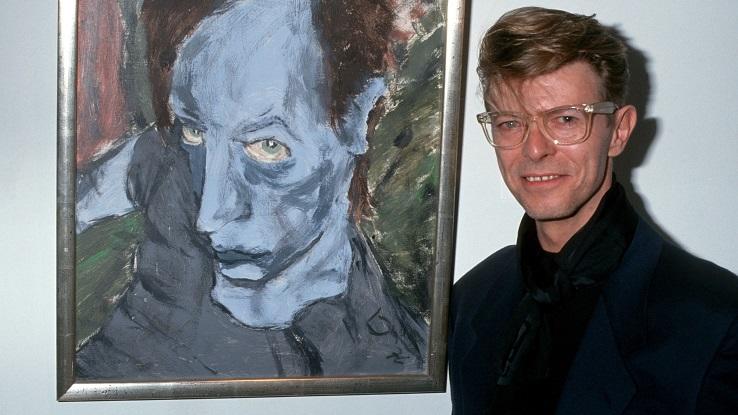
His raw pieces often ignored technicality but were a way for Bowie to overcome artistic blocks he faced while writing his lyrics. In 1998, he told The New York Times, "I'd detect that if I had some creative obstacle in the music that I was working on, I would frequently revert to drawing it out or painting it out."
He Performed with 10 Different Bands
Talk virtually indecisiveness! Bowie rocked as a solo act, but he frequently formed, joined and performed with other rockers, musicians and bands. He was a continuing member in 10 bands, including The Hooker Brothers, The Manish Boys, The Lower Third, The Buzz, The Riot Squad, The Konrads, The Hype, The Male monarch Bees, Tao Jones Index and Tin Machine.
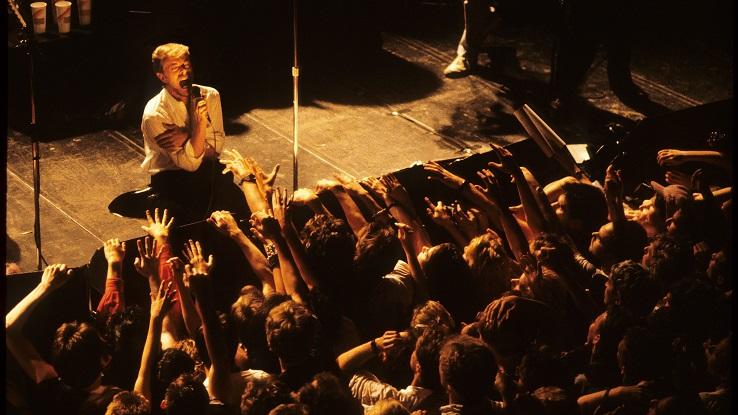
Some of these bands were successful; others were complete flops. Bowie treated his commitments to these bands much like commitments to his personas, joining and leaving groups in fits and starts. Fortunately, he always finished what he started when it came to tours and shows, fifty-fifty when the performances went poorly.
He Was in a Video Game
When he wasn't starring in films, television set, Broadway shows and his own personal performances, Bowie decided to try out another performance medium: video games. Back in 1999, Bowie and his married woman, Iman, both starred equally featured characters in the video game Omikron: The Nomad Soul.
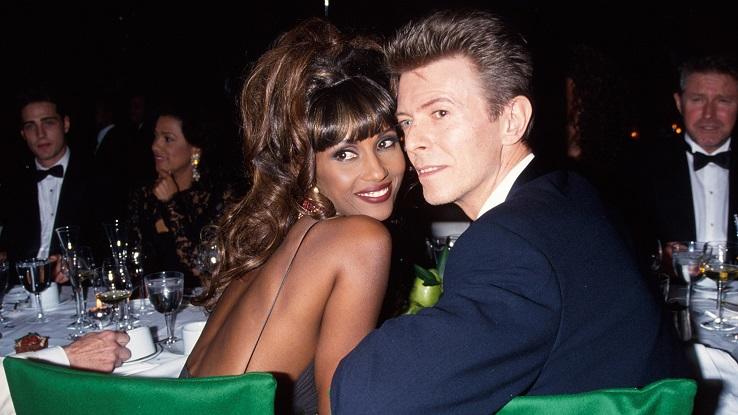
In the game, Bowie played a revolutionary called Boz, who occupied virtual concert spaces throughout the game's narrative. In addition to lending his epitome to the trippy game, he also wrote Omikron's haunting music. The epic score and character feature gave him a new reputation in the world of gamers, who were major fans of the megastar's role.
He Had an Unusual Stalker
Could y'all imagine being followed beyond the land by a giant bunny? This may audio similar something out of Donnie Darko, yet it was Bowie's reality in 2004. Why was a massive pink rabbit abaft him from city to city on his North American tour? God only knows. Yet, a relatively brusk individual in a bunny costume kept popping up along his route.
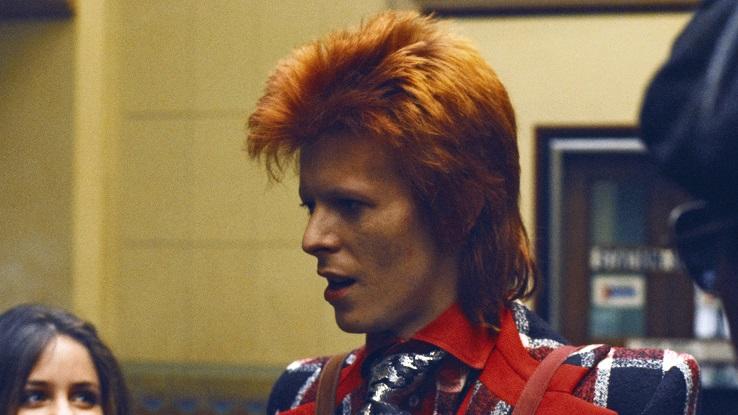
At first, the mysterious bunny seemed to be harmless. Bowie even adapted his song lyrics at sure shows to poke fun at the furry stalker in the audience. Nevertheless, things took a turn for the absurd when he boarded a flight in New York and institute the rabbit (still in costume) onboard. Creepy. The bunny'southward identity remains unknown.
His Babyhood B.F.F. Was As well a Rock Star
Many of Bowie's childhood friends had a significant impact on his time to come. Even Underwood (who gave him his dilated pupil) went on to design several of his album covers. Still, Bowie probably didn't realize at the time that he was constantly in the presence of another superstar. At Bromley Technical High School, he became close friends with hereafter guitar fable Peter Frampton.
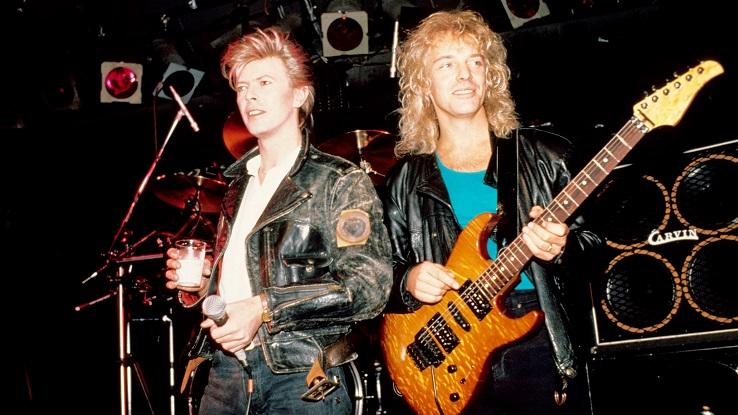
They often spent breaks in their school day jamming to stone and popular tunes, never realizing that kids in the future would practise the same to their music. These days, Bowie is ane of history's biggest stone stars, and Frampton is his equal in the world of guitarists. It turns out that surrounding yourself with greatness might actually brand you lot great.
He Was Also Buddies with Elton John
When Elton John was nevertheless Reginald Kenneth Dwight, he met David Bowie, who was still David Jones. Both were in their tumultuous and evolutionary teenage years when the music-loving duo grew shut. They frequently chatted most their favorite music, frequented coffee shops and gay clubs together and soaked up the evolving English rock and pop scenes.
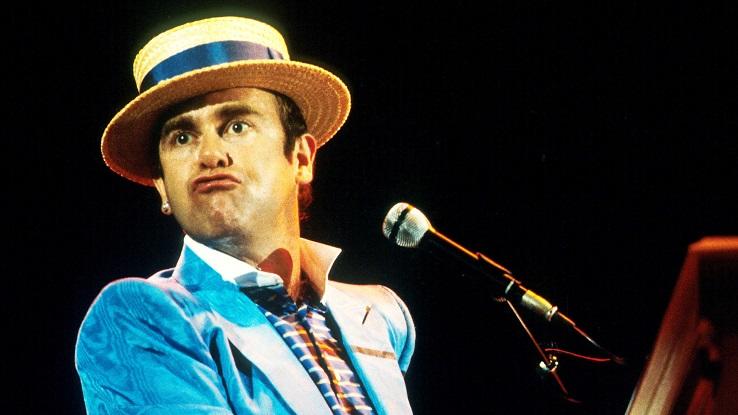
Unfortunately, their friendship fell autonomously equally their careers blossomed. Later on Bowie died, Elton John shared, "Nosotros started out being really good friends…merely I think nosotros just drifted apart. He one time chosen me 'rock 'n' ringlet's token queen'…which I idea was a bit snooty. He wasn't my loving cup of tea. No, I wasn't his cup of tea."
David Bowie's Brother Inspired His Famous Tunes
The name Terry Burns may not hateful as much to you every bit David Bowie, merely the man backside that name was a major force in Bowie's career. Burns, who was his half-brother, shaped his lyrics and inspired a plethora of his almost insightful songs. Growing up, the brothers frequently hung out, attended concerts, researched religion and even read novels together.
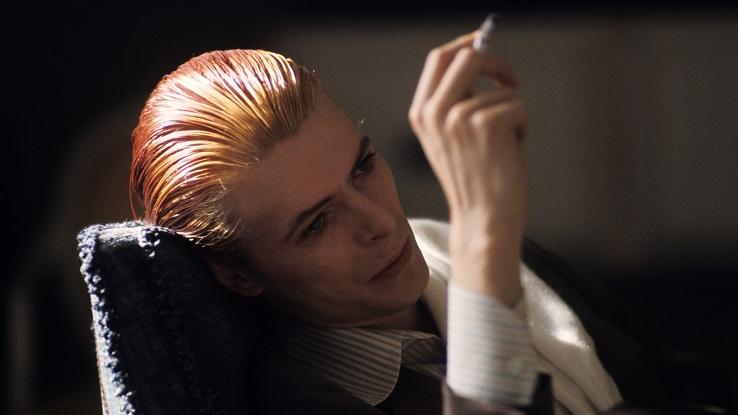
Sadly, Burns suffered from a variety of mental illnesses, including severe schizophrenia. As an developed, he spent most of his fourth dimension within the walls of a psychiatric infirmary called Cane Hill. Unfortunately, he broke out in 1984 and took his own life. His death took a toll on Bowie, leading him to produce songs such as "All the Madmen."
He Adored the Earliest Www
Unlike pop stars such as Prince, who despised the influence the cyberspace had on music, Bowie couldn't get enough of the new engineering science. In a 1999 interview with Jeremy Paxman, he shared that he believed the internet would have "unimaginable" implications on the evolving world.
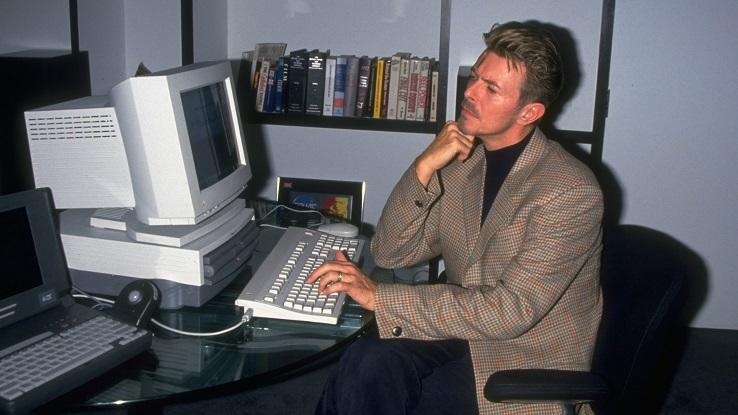
He told Paxman: "I actually cover the thought that there's a new demystification process between the creative person and the audience. The interplay between the user and the provider…it's going to trounce our ideas of what mediums are all about." Bowie fifty-fifty created his own web browsing service, which he chosen BowieNet. The subscription-based website survived from 1998 to 2012.
Bowie's Final Album Was a Farewell to Fans
Was David Bowie psychic? It'south hard to know for sure, because his 25th and final album was released a mere two days before his decease. At the very least, the timing of his final torso of work was haunting. Audiences across the globe were shocked to learn of his death, equally Bowie — suffering from liver cancer — had kept his illness hidden from his fans.
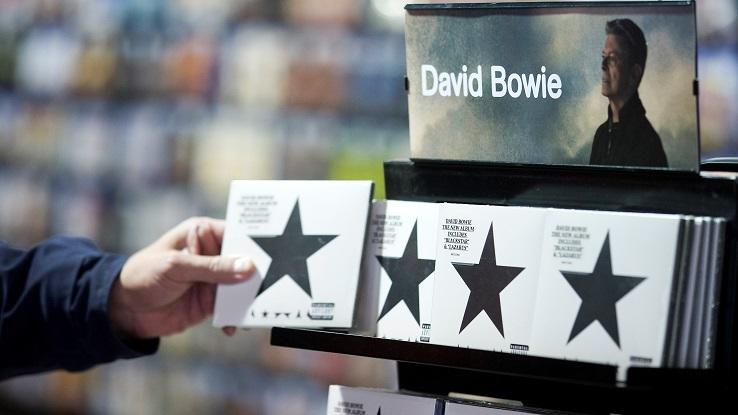
His producer, Tony Visconti, described Bowie's final album equally his adieu in an emotional Facebook mail service. "He always did what he wanted to practise…and he wanted to practice it the all-time way. His death was no different from his life — a piece of work of Art. He made Blackstar for u.s., his parting gift."
He Declined to Perform at the Olympics
In 2012, the Olympics were held in England's artistic hub, London. The opening ceremony's artistic managing director, Danny Boyle, could think of no amend act to perform a gear up than the Starman himself. Nevertheless, when he asked Bowie to sing, he declined the offer. At the time, he hadn't performed alive since 2006, and he wasn't eager to do and so again.
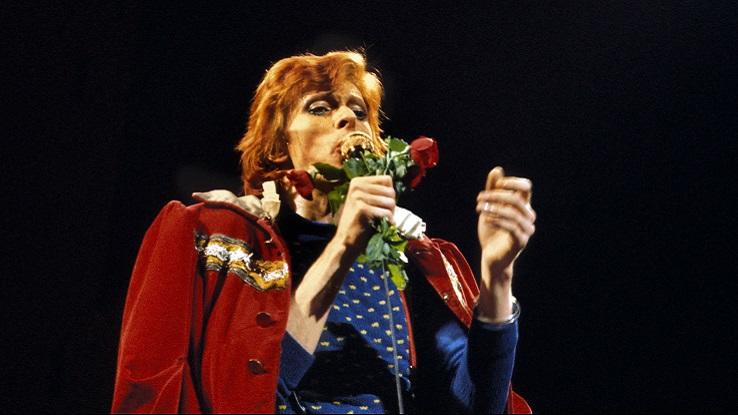
Yet, Bowie was willing to take his widely adored music played alongside clips of previous performances. Boyle told the Yorkshire Postal service, "I went to meet David Bowie…he wasn't into performing live, but he gave usa all the back up we needed, which was a large buzz for me because he is one of my heroes."
He Wrote His Ain Musical
Many nifty rock stars of Bowie'south age have contributed to the scores used in at present-famous musicals, such as Cindy Lauper'south Kinky Boots and Sir Elton John's The Lion King. Bowie was inspired to do the aforementioned. For one of his last works during his life, he wrote the lyrics and score to his ain musical: Lazarus.
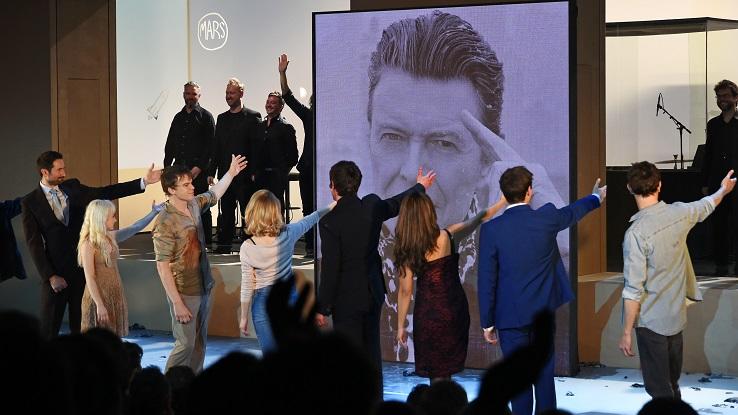
Co-written with Irish playwright Enda Walsh, Lazarus was inspired by Walter Travis' novel The Human being Who Vicious to Earth. Bowie had previously starred in a picture show adaptation of the volume. The musical premiered in November 2015, a few months before his death in Jan 2016. As of 2019, it has been performed in several locations across Europe.
He Was Terrified of Tea
Bowie may be as English as they come, yet the star refused to drinkable a drop of tea. What exactly turned him off the drink that is such a mainstay drink for his country of origin? Plainly, he didn't have an consequence with the flavor or consistency. Instead, a childhood trauma put him off the English language staple.
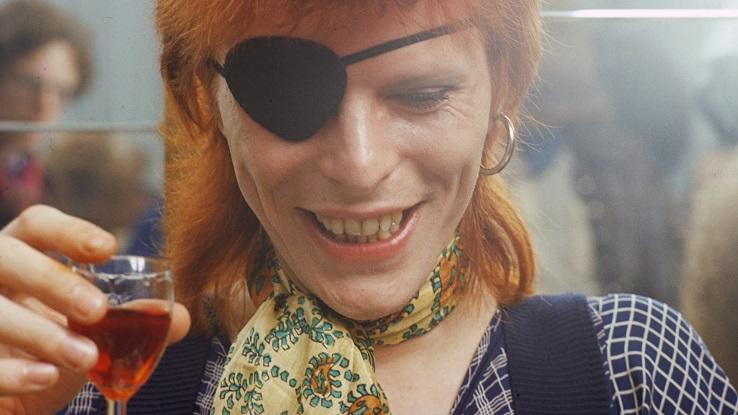
Information technology'southward unclear what the exact experience was that ruined teatime for Bowie. However, we know he stopped consuming the drink when he was 5 years sometime afterward a negative incident with a cuppa. Could he have dropped hot tea on his lap? Burned his tongue to a well-baked? No matter what caused it, Bowie steered clear of tea for the residue of his life.
Bowie's First Dearest Was Jazz
Although Bowie was known for his persona every bit a glam-rock pop star, he wasn't initially drawn to the musical stylings of other rock artists. In fact, one of his favorite early music genres was jazz. When he was 12, someone gave him a saxophone, and he began to binge on jazz artists like Charles Mingus with his jazz-loving blood brother.
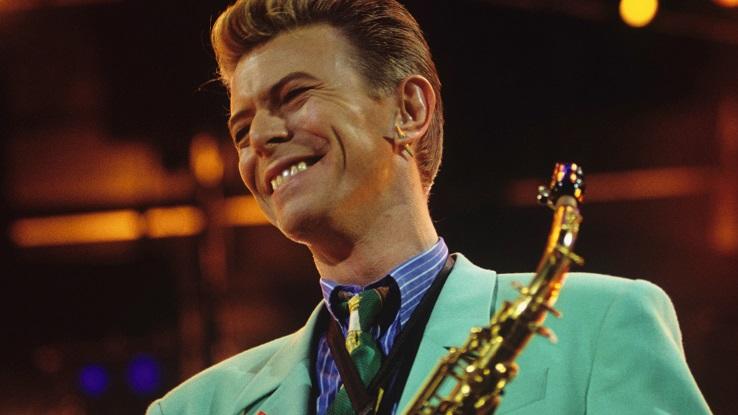
His saxophone days and his involvement in jazz music remained a primal influence in his evolution. Although he found his own way, he remained deeply enamored with the genre. He even shared a trip the light fantastic toe with Princess Diana to the stylings of George Melly. The lifelong jazz fan never lost his appreciation for the music that shaped his upbringing.
The Megastar Passed Upwards Knighthood
The Queen of England has long been known to laurels famous musicians by knighting them. Among those receiving this nifty title are Sir Elton John, Sir John Lennon and Sir Mick Jagger. Of grade, David Bowie was certainly influential enough for the Queen to offer him knighthood — just he respectfully declined the honor. Gasp!
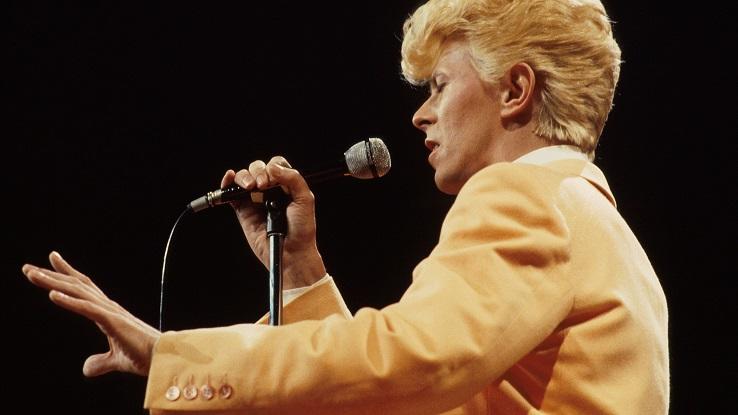
Why did he decline to be knighted? In 2003, he told The Sunday, "I would never have any intention of accepting anything like that. I seriously don't know what information technology's for. It's not what I spent my life working for…Am I anti-monarchy? I'd only take a serious reply to that if I was living in this country."
He Was in SpongeBob's Atlantis SquarePantis
In addition to an uber-successful singing career, Bowie had a fairly rich history in acting. He is widely recognized for his stellar and spooky performances in films like Labyrinth (1986) and The Man Who Savage to Earth (1976). Did you know that he also lent his heavenly voice to a character in Atlantis SquarePantis (2007)?
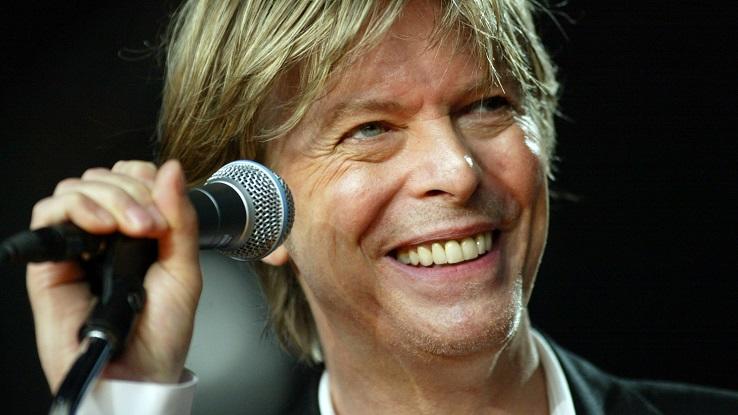
Believe it or not, David Bowie had a featured role in this SpongeBob SquarePants' flick, playing Lord Royal Highness, an Atlantean King. His character had the same flair as Bowie himself, sporting fabulous heels, a killer crown and fancy, glittery garb. In a public web log postal service, he highlighted the role, sharing, "I've hitting the Holy Grail of animation gigs."
Source: https://www.ask.com/entertainment/facts-david-bowie?utm_content=params%3Ao%3D740004%26ad%3DdirN%26qo%3DserpIndex
0 Response to "David Bowie Chant of the Ever Circling Skeletal Family"
Post a Comment